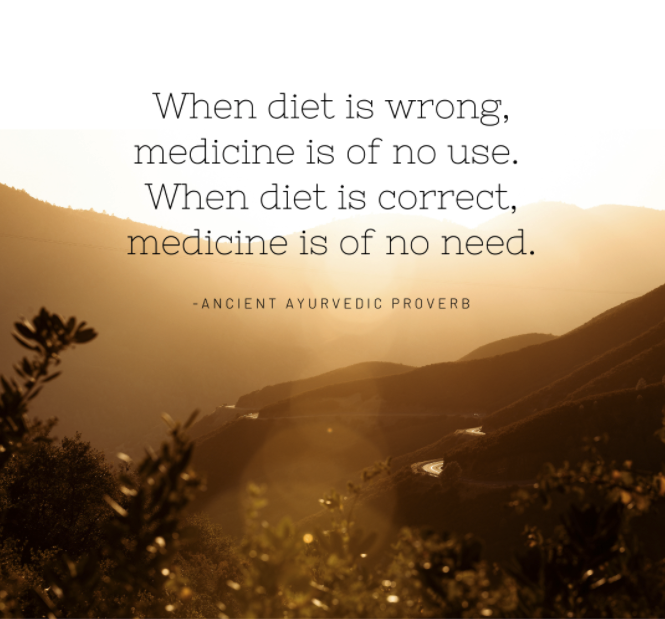According to the CDC, about 80 percent of older adults (above age 65) have at least one chronic disease and 68 percent have at least two (1). The CDC defines chronic disease as “conditions that last 1 year or more and require ongoing medical attention or limit activities of daily living or both” (2). The most common chronic disease in America today are:
- Heart Disease
- Cancer
- Chronic Lung Disease
- Stroke
- Alzheimer’s Disease
- Diabetes (Type II)
- Kidney Disease
You might be asking, so what? I’m young and healthy so why would I need to worry about those things now? The straightforward answer, while unpopular, is that if you aren’t proactive about your health when you’re young and healthy, the odds of keeping your health as you get older aren’t very good. Not to mention it is expensive to be unwell! 95% of health care costs for older Americans can be attributed to chronic diseases (3).
That’s why preventative health is the best health care. It involves taking charge of your health NOW and to take proactive measures so that you can stay healthy as you age. This new idea is becoming popular and is shifting the focus from having a long “lifespan”, to what the wellness industry calls a “healthspan”. A long healthspan is the idea that people can live out their lives for as long as possible with the mental and physical ability to do the things they enjoy.
The best way to be proactive with your health is to support the 6 Nutrition Foundations. According to the Nutrition Therapy Association the 6 Nutrition Foundations are:
- Properly prepared nutrient dense Diet
- Digestion
- Blood Sugar Regulation
- Fatty Acids
- Mineral Balance
- Hydration
In order for our bodies to maintain proper functions, each foundation must be supported. Similarly if they are not supported over a (sometimes not so) long period of time, the body starts to experience dysfunction which can present itself in many forms, most commonly in the form of chronic disease. I will explain each one and how they work together to support proper function and overall health of the body.
Properly prepared nutrient-dense Diet
Our bodies developed over tens of thousands of years when whole foods were the only type of food that was available. Processed and chemically treated foods were not an option until very recently in human history (past few hundred years). A diet that is optimal for health doesn’t have to be perfect, but eating a variety of whole foods most of the time is essential to getting a variety and adequate supply of nutrients.
Digestion
Our bodies rely on digesting the food we eat to provide all the necessary components it needs to keep us alive. The reason it is a critical aspect of overall health can be assimilated to the saying in tech “data in, data out”. Meaning the quality of inputs you provide impacts the quality of the output you get from any specific process. For digestion specifically, how well our body performs its numerous functions is dependent on the quality of food, environment, and level of stress.
Blood Sugar Regulation
Blood sugar is an important foundation to health because it regulates key functions including storing fat, managing hormones, regulating the immune system, and more. A rise and fall and blood sugar within certain ranges are normal, in fact, our body relies on it. However, it’s when these peaks or valleys become so exaggerated that it gets out of balance and causes damage to the body.
Fatty Acids
Fat is responsible for numerous functions in our bodies including providing energy, absorbing fat-soluble nutrients, cholesterol, bile, and prostaglandin production.
Mineral Balance
Minerals account for about 4% of the body, and all of them have to be consumed through the diet since our body cannot produce minerals on its own. This is critical since minerals play an important role in tissue growth, providing structural and functional support, contracting and relaxing muscles, enabling cofactor and enzyme reactions.
Hydration
Our bodies are made up of roughly 55% water, in the average adult that is about 13 gallons! To put it in perspective, we can live 8 weeks without food but only a few days without water. The main reason for this is that water can’t be stored in our body for future consumption as we can do for other nutrients. Therefore we require frequent consumption of water, about 100oz/day for males and 75oz/day for females is ideal.
Bringing them all together
At any given time, our bodies are stronger in some of the foundations than others but it doesn’t always mean it’s game over for our health. Our bodies are extremely resilient and can withstand a lot before they show any signs. Said another way, our bodies are in many ways too good to us.
Each of the foundations interacts with the other. For example, eating a nutrient-dense diet is a precursor to getting enough minerals. Having properly functioning digestion is important to absorbing, and delivering enough fat to cells in the body. Hydration plays a role in almost every function in the body. Blood sugar impacts hormones involved in digesting food. The list goes on.
When the body gets out the balance in one area, it compensates from another area. This is where it gets interesting since this shows up differently in each of us. There is a new field of science called Epigenetics that explains that while we can’t change our genes, we can impact how our genes are expressed which plays a huge role in the rise in chronic illness. Our bodies are always giving signals and cues when things aren’t working properly but we don’t always listen. When it goes on for too long, that when chronic illness starts to manifest in the body.
Call to action
Be proactive about your health, start today. Eat a diet centered around whole foods that are minimally processed. This ensures your body is getting the nutrients it needs and supports proper digestion. Include various nuts and seeds to promote a diet rich in healthy fat. Cut out processed foods, including refined carbs to balance blood sugar. Be Mindful of stress and the environment you are in, incorporate meditation, yoga, or other calming practices as needed. Aim to drink 75oz of water per day to ensure you are hydrated; drink more if you are active. Look up the quality of your tap water on EWG.com to determine if a water filter is best for you. Work with a practitioner for personalized recommendations.
The truth is that the Standard American Diet (not so ironically abbreviated to SAD), is a key contributor to chronic disease. The good news is that the food we eat is something we have control over. It’s never too late to make healthy changes in your life and no change is too small.
By being proactive and focusing on each of the 6 Nutrition Foundations when you’re young and healthy, you give yourself a huge advantage towards having not just a long lifespan, but a long health span.
References:
- Centers for Disease Control and Prevention. Healthy Aging at a Glance 2011. Atlanta, GA: Centers for Disease Control and Prevention, US Dept of Health and Human Services; 2011.
- https://www.cdc.gov/chronicdisease/about/index.htm
- Centers for Disease Control and Prevention. The State of Aging and Health in America 2013. Atlanta, GA: Centers for Disease Control and Prevention, US Dept of Health and Human Services; 2013.
Healthy Habits on the Go: Managing Competing Priorities
Managing competing priorities and maintaining your health while traveling can be hard. Discover tips for balancing sleep, exercise, and more.
Healthy Habits on the Go: Eating Healthy While Traveling
Learn how to maintain a healthy diet while traveling. From packing snacks to navigating airport food, stay energized and on track on the go!
Healthy Habits on the Go: Smart Packing Tips and Essential Supplements
Explore healthy packing tips and tools to maintain your wellness goals on the go, including essential supplements and a smart packing list.
Healthy Habits on the Go: Strategies for Staying on Track When You’re Off Your Routine
Traveling, especially for business, presents unique obstacles to maintaining a healthy routine. Discover strategies for sticking with healthy habits on the go.
How blood sugar impacts your hormones and why you should care as a healthy adult!
Did you know that the body produces over 100 hormones? Hormones have a bad reputation because society usually only talks about them in relation to bad mood swings







Thanks for your blog, nice to read. Do not stop.